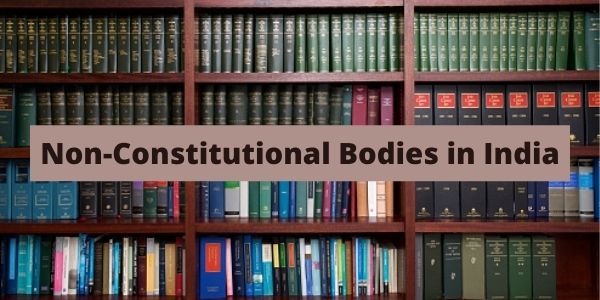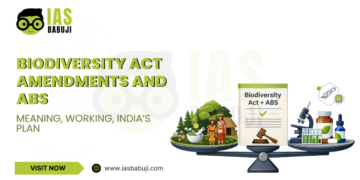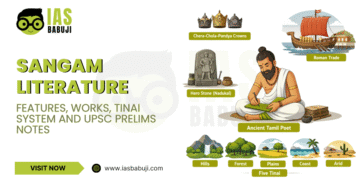To begin with, in this article, know the details of the Non-Constitutional Bodies in India. Further, know about the Statutory Body meaning, Non-Statutory Body meaning, and other related information. Besides, there are many things to be taken care of in the IAS exam, and the exam has the longest syllabus. Later, this article will help you in providing the details related to the IAS exam syllabus. So, read the article and get the details.

Introduction
In the first place, let us understand the meaning of Non-Constitutional Bodies in India. A Non-Constitutional Bodies in India is an organization that is not mentioned in the Constitution of India. However, these are important for their functions, and the Act of Parliament creates them. Further, they are called ‘statutory’ since statutes are laws made by the Parliament or the legislature. Besides, as they derive power from laws made by the Parliament.
Let us try to understand some of them, like the Non-Statutory Body Meaning below in the article.
List of Important Statutory Bodies in India
Further, below we have mentioned some of the important bodies present in India.
- Securities & Exchange Board of India – SEBI Act, 1992
- National Human Rights Commission
- National Green Tribunal
- and National Commission for Women
- Armed Forces Tribunal
- National Commission for Protection of Child Rights
- and National Legal Services Authority
- National Bank for Agriculture and Rural Development
Classification of Non–Constitutional Bodies in India
Below is the classification of the Non-Constitutional Bodies in India
- Statutory Bodies – In the first place, they get the power from a statute. Example – National Investigation Agency (NIA), National Human Rights Commission (NHRC)
- Non-Statutory Bodies – then, these bodies are usually get the power from an Executive order. Example – National Development Council (NDC) etc
Further, they are divided into
Regulatory Bodies – Later, these are the public or government agencies responsible for exercising autonomous authority. Further, some of the regulatory bodies are independent, which means they are independent of any branch of the government. Besides, they have a responsibility to establish norms of a particular area of human activity.
Quasi-Judicial Bodies – further, these are the individual or bodies with powers assembling a court of law. These are different from judicial bodies in that their field is limited compared to a court.

List of Quasi-Judicial Bodies in India are:
- National Green Tribunal
- Central Information Commission
- National Human Rights Commission
- Tribunal
- SEBI
Further, click here to get the complete details of the various acts and their meaning. Although we have added all information, and it is also important for the exam. Read More.
Difference between Statutory and Non-Statutory Body Meaning?
Now let us get some details on the differences between these two bodies. First, as it might create some confusion, Statutory refers to institutions and bodies defined by a formal law or a statute. Further, these bodies are shaped by an Act of Parliament and set up by the Government. Besides, Non-statutory is another important term for common law. Further, such bodies are formed by the executive resolution or action, which means that they are formed only by the Government’s action.
IAS Exam Highlights
Later, probably now you have got a clear understanding of the Non-Constitutional Bodies in India. Now we will understand all details related to the IAS exam. Therefore, in the below table, we have added all information related to the IAS exam. Further, one must visit the official website to get the complete information of the UPSC and the IAS exam. Further, in the prelims, questions will be objective type, and in the main exam, you have to write the answer. Later, there will be a deduction of marks for every wrong answer.
| Particulars | Details |
|---|---|
| Name of the exam | Civil Services Exam- IAS |
| Conducting authority | Union Public Service Commission |
| Mode of Exam | Offline |
| Number of Stages | Prelims exam Mains exam, and Interview |
| Number of papers | Prelims: 2 Mains: 9 |
| Duration | Prelims: 2 hours (Each paper) |
IAS Exam Questions
Further, below we have added some of the questions that will help you understand the Non-Constitutional Bodies in India and the question pattern. So, now you know the concept well. But, it is essential to know question patterns, marks, topics, and many other tiny details. Therefore, you can give a mock test and solve as many papers as possible for this purpose. So, for your help, we have added some details below. You can make a note of them.
Further, below we have added some of the questions that will help you understand the Non-Constitutional Bodies in India and the question pattern.
Which of the following is/are true for working of National and State Human Rights Commission?
I) It can punish the people found guilty of a violation of human rights only on enquiry.
II) Its recommendations are not binding on the government.
a. Only I
b. Only II
c. Both I and II
Answer – b
Which of the statements are correct related to the composition of the Planning Commission?
I) Planning Commission has no state representation.
II) Planning Commission is the non-statutory and non-constitutional body.
a. Only I
b. Only II
c. Both I and II
d. None of the above
Answer – C
The committee which suggests the appointment of the CBI Director consists of which of the following?
I) Central Vigilance Commissioner.
II) Union Minister of Home Affairs.
III) Prime Minister.
a. 1
b. 1, 3
c. 2, 3
d. All of the above
Answer – a

Continued – Non-Constitutional Bodies in India
Which of the statements are correct related to the composition of the Central Vigilance Commission?
I) The Central Commission submits an annual report to the Union Government.
II) The Commission does not have statutory status.
a. Only I
b. Only II
c. Both I and II
d. None of the above
Answer – a
Which of the statements are correct regarding the powers and functions of the Central and State Information Commission?
I) The Central Commission submits an annual report to the Union Government.
II) The Commission does not have the suo-moto power of ordering an inquiry.
a. Only I
b. Only II
c. Both I and II
d. None of the above
Answer – a
Which of the statements are correct related to the National Development Council (NDC)?
I) The NDC is a statutory body and not a constitutional one.
II) The NDC has Chief Ministers of all states.
II) NDC is the highest body, below the Parliament, responsible for policy matters with regards to planning.
a. 1, 2
b. 2, 3
c. 1, 3
d. All of the above
Answer – b
What new amendments by the Protection of Human Rights Act, 2006?
I) Number of members of State Human Rights Commissions (SHRCs) decreased from 5 to 3.
II) National Human Rights Commission (NHRC) can visit jails without prior intimation to the State Governments.
III) Chairperson and members of the NHRC can address their resignations in writing to the President.
IV) NHRC can transfer complaints received by it to the concerned SHRC.
a. 2, 3, 4
b. 1, 3, 4
c. 1, 2
d. All of the above
Answer – d
Conclusion – Non-Constitutional Bodies in India
To conclude, in the article, we have added information on the Non-Constitutional Bodies in India, Non-Statutory Body Meaning, and other related details. Besides, you will find complete information, and it will also help you with the exam. If you are preparing for the exam, you should take care of all these things. Further, we also have some of the questions that will explain the paper pattern and the concepts. Later, to get the best results in the exam, you have to study and revise all the concepts. These articles and laws are difficult to understand. So, make your points and study during the exam.
We have added only a few examples. Further, you can refer to the previous year’s papers for more question patterns and topics on the Non-Constitutional Bodies in India. Additionally, there are many sources available online, and you can study from them as well. It is just that try to cover all concepts for the exam. Then, click here to get the complete information about the IAS exam. In addition, we have added all the necessary details of the IAS exam in our other articles. Besides, one can take coaching classes, and we have also added all details related to the classes in various cities. So, it will help you with the search.
FAQs – Non-Constitutional Bodies in India

Lastly, we have added some FAQs that will help you with a better understanding of the concept.
Non-Statutory Body Meaning is essentially another term for common law.
Yes, one must have an understanding of the Non-Constitutional Bodies in India. You can refer to the previous year’s papers. Further, read the complete article for more details on the same.
In the first place, know the exam syllabus and pattern. Further, study from the best books from the store.
Editor’s Note | Non-Constitutional Bodies in India
In brief, in the above article, we have added all the details related to the Non-Constitutional Bodies in India, Statutory Body Meaning, and Non-Statutory Body Meaning. Further, we have also added all details related to the IAS exam, and you will find questions examples related to the concept. Besides, one needs to understand all the concepts when it comes to the IAS exam. Later, as we all know, the IAS exam is the toughest exam present in India. So, make sure that you have covered everything related to the exam syllabus. Therefore, you can refer to the previous year’s paper for more understanding of the topic.
Later, there are many sources present online you can make use of them and prepare notes. Besides, in this article, we have focused on the Non-Constitutional Bodies in India. It will help you fetch good marks in the exam. Therefore, put in all efforts to clear the exam. Besides, try to use some tips from the topperes that will help you to fetch marks in the exam. Finally, we wish you good luck with the IAS exam, prepare well for the exam and put in all hard work.






